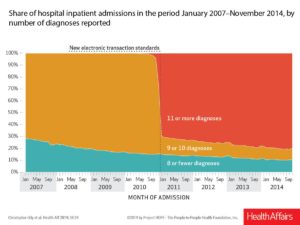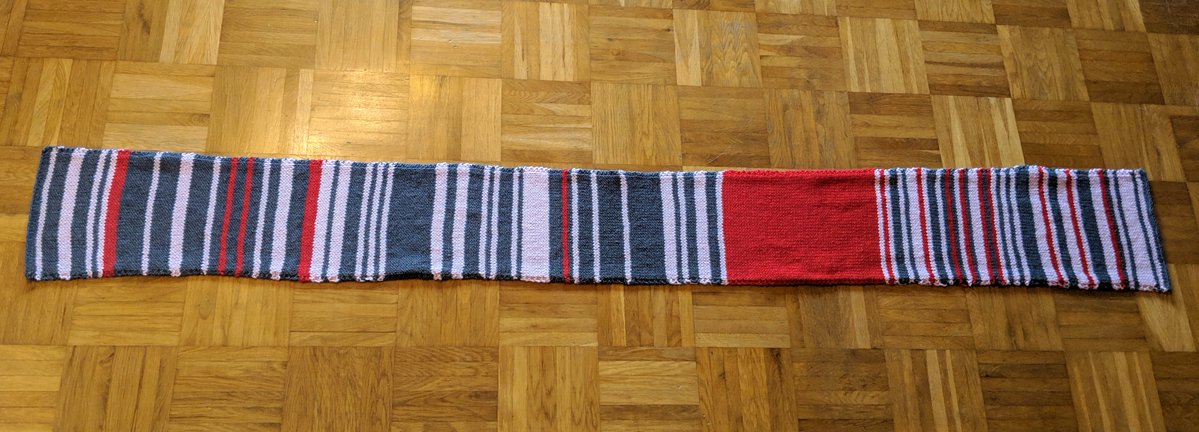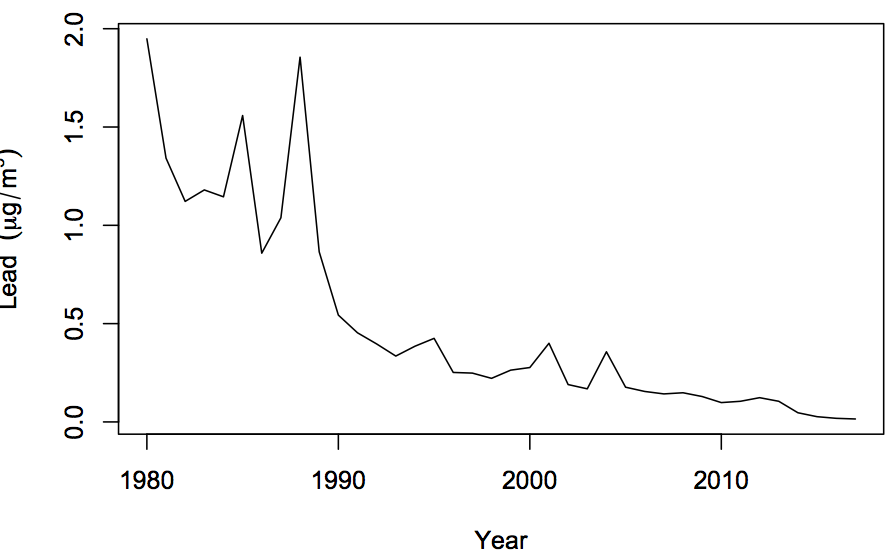January 14, 2019
Briefly
- Data definition drift: the impact of interventions to reduce hospital readmissions has been overestimated because of changes in how admissions are coded. When systems change to allow more than 10 diagnoses to be entered, more than 10 are entered for a lot of people (Twitter thread)

- Public transport data visualisation, from Twitter. Sara Weber says (in translation) “My mother is a commuter in the Munich area. And avid knitter. She knitted a “rail delay scarf” in 2018. Two rows per day: Grey at under 5 minutes, pink at 5 to 30 minutes delay, red if delayed on both trips or once over 30 minutes.”

- Pew Research, whose fault “millennial” is, remind us that they define millennials as born 1981-1996. The youngest millennials are now 22. (via @drob)
- Some years ago, there were stories about a young woman who was outed as pregnant by Target’s targeted advertising before she’d decided to tell people. There’s a new ad for a firm called Zulily that is pushing this as a good thing. (via Amie Stepanovich)
- There’s a story on Stuff about lead in eggs from backyard chickens. The story ends with a quote from someone who keeps chickens “you’re breathing in more lead living next to a busy road more than the chickens going to lay in its lifetime.”. That might have been true forty years ago, but it isn’t true now — getting rid of unleaded petrol has resulted in lead air pollution from traffic largely going away. Lead is the big success story of pollution reduction. Here’s a graph of average lead concentrations in the air across US air pollution monitoring stations (the trend would be similar in NZ)

Thomas Lumley (@tslumley) is Professor of Biostatistics at the University of Auckland. His research interests include semiparametric models, survey sampling, statistical computing, foundations of statistics, and whatever methodological problems his medical collaborators come up with. He also blogs at Biased and Inefficient See all posts by Thomas Lumley »